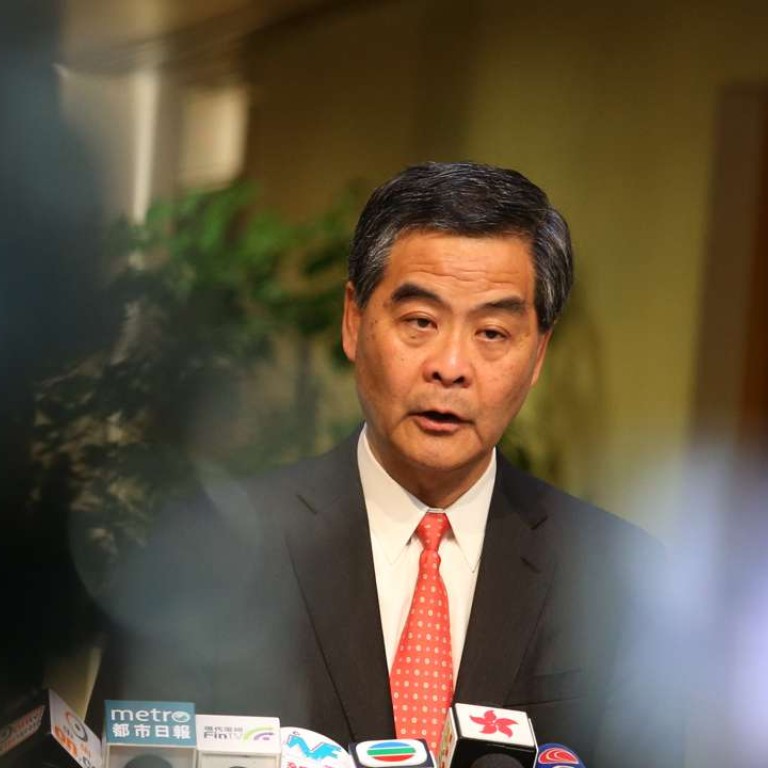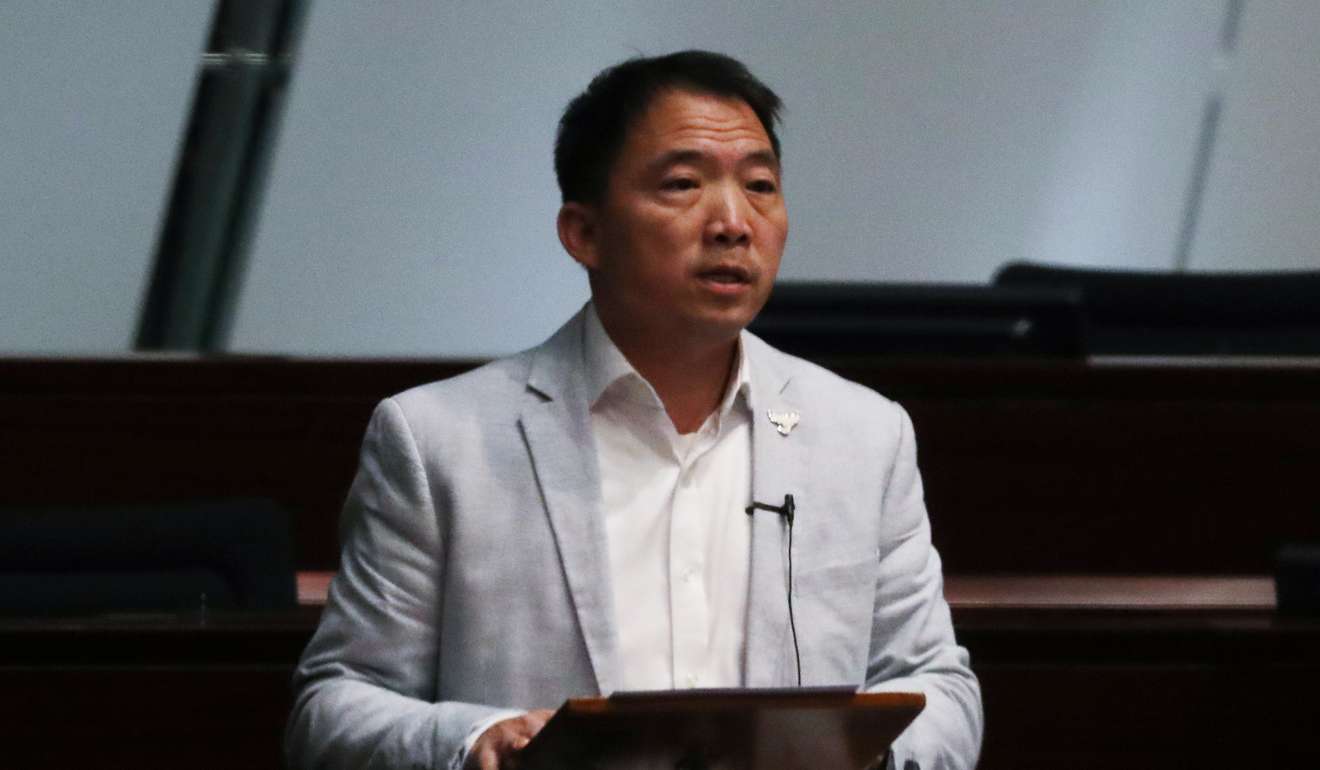
CY Leung considered pardon for Occupy protesters and police, but says he cannot override legal proceedings
Chief executive also says ‘Civic Square’, a popular protest spot, is not ready for reopening due to safety reasons
Hong Kong Chief Executive Leung Chun-ying said on Saturday he had considered pardoning those involved in the 2014 Occupy protests, but realised he could not override legal proceedings.
Speaking on an RTHK radio programme, Leung said he had considered using his powers to issue an amnesty amid public debate on the issue.
He did not refer to specific cases but said: “Legal proceedings are still under way in which the chief executive and the administration cannot intervene.”
WATCH: More than 30,000 gather in support of officers jailed for beating up Occupy protester
The chief executive has the power to pardon a convicted person or commute their penalties under Article 48 (12) of the Basic Law, but the mini-constitution does not prescribe in detail the circumstances under which the power can be exercised.
Leung also rejected another suggestion for reconciliation on safety grounds – the reopening of the forecourt of the government headquarters popularly known as Civic Square.

The administration, which conducts regular risk assessments, had decided the space was not ready to be reopened, he said, adding that the part of the building linked to the square was made of glass.
The next Hong Kong leader, Carrie Lam Cheng Yuet-ngor, had said during the leadership race she would be willing to consider reopening the square.
Pan-democrats have been urging the new administration to reopen it. They have recently been joined by several pro-establishment lawmakers.
WATCH: Riot police deployed after Hong Kong students storm Civic Square
“They are not clear about the mainland situation and Beijing’s governing principles on Hong Kong ... so they misjudged Beijing’s bottom line over political reform and the chief executive election,” Leung said.
Addressing skyrocketing property prices, Leung, who has placed housing as his top priority, defended the incumbent administration, saying it had boosted housing supply through measures to exclude foreign speculators.

